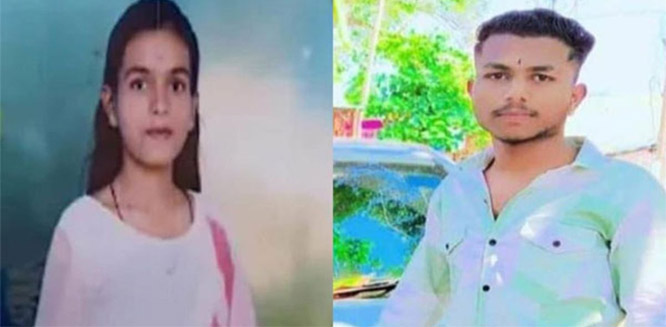Feb 6: In recent weeks, scientists have sounded the alarm about new variants of the coronavirus that carry a handful of tiny mutations, some of which seem to make vaccines less effective.
But it is not just these small genetic changes that are raising concerns. The novel coronavirus has a propensity to mix large chunks of its genome when it makes copies of itself. Unlike small mutations, which are like typos in the sequence, a phenomenon called recombination resembles a major copy-and-paste error in which the second half of a sentence is completely overwritten with a slightly different version.
A flurry of new studies suggests that recombination may allow the virus to shapeshift in dangerous ways. But in the long term, this biological machinery may offer a silver lining, helping researchers find drugs to stop the virus in its tracks.
“There’s no question that recombination is happening,” said Nels Elde, an evolutionary geneticist at the University of Utah. “And in fact, it’s probably a bit underappreciated and could be at play even in the emergence of some of the new variants of concern.”
The coronavirus mutations that most people have heard about, such as those in the B.1.351 variant first detected in South Africa, are changes in a single “letter” of the virus’s long genetic sequence, or RNA. Because the virus has a robust system for proofreading its RNA code, these small mutations are relatively rare.
Recombination, in contrast, is rife in coronaviruses.
Researchers at Vanderbilt University Medical Center led by the virus expert Mark Denison recently studied how things go awry during replication in three coronaviruses, including SARS-CoV-2, which causes COVID. The team found that all three viruses showed “extensive” recombination when replicating separately in the laboratory.
Scientists worry that recombination might allow for different variants of the coronavirus to combine into more dangerous versions inside of a person’s body. The B.1.1.7 variant first detected in Britain, for example, had more than a dozen mutations that seemed to appear suddenly.
Elde said that recombination may have merged mutations from different variants that arose spontaneously within the same person over time or that co-infected someone simultaneously. For now, he said, that idea is speculative: “It’s really hard to see these invisible scars from a recombination event.” And although getting infected with two variants at once is possible, it’s thought to be rare.
Katrina Lythgoe, an evolutionary epidemiologist at the Oxford Big Data Institute in Britain, is skeptical that co-infection happens often. “But the new variants of concern have taught us that rare events can still have a big impact,” she added.
Recombination might also allow two different coronaviruses from the same taxonomic group to swap some of their genes. To examine that risk more closely, Elde and his colleagues compared the genetic sequences of many different coronaviruses, including SARS-CoV-2 and some of its distant relatives known to infect pigs and cattle.
Using specially developed software, the scientists highlighted the places where those viruses’ sequences aligned and matched — and where they didn’t. The software suggested that over the past couple of centuries of the viruses’ evolution, many of the recombination events involved segments that made the spike protein, which helps the virus enter human cells. That’s troubling, the scientists said, because it could be a route through which one virus essentially equips another to infect people.
“Through this recombination, a virus that can’t infect people could recombine with a virus like SARS-CoV-2 and take the sequence for spike, and could become able to infect people,” said Stephen Goldstein, an evolutionary virologist who worked on the study.
The findings, which were posted online on Thursday but have not yet been published in a scientific journal, offered fresh evidence that related coronaviruses are quite promiscuous in terms of recombining with each other. There were also many sequences that cropped up in the coronaviruses that seemed to come out of nowhere.
“In some cases, it almost looks like there’s sequence dropping in from outer space, from coronaviruses we don’t even know about yet,” Elde said. The recombination of coronaviruses across totally different groups has not been closely studied, in part because such experiments would potentially have to undergo government review in the United States because of safety risks.
Feng Gao, a virologist at Jinan University in Guangzhou, China, said that although the new software from the Utah researchers found unusual sequences in coronaviruses, that doesn’t provide ironclad evidence for recombination. It could simply be that they evolved that way on their own.
“Diversity, no matter how much, does not mean recombination,” Gao said. “It can well be caused by huge diversification during viral evolution.”
Scientists have limited knowledge about whether recombination could give rise to new pandemic coronaviruses, said Vincent Munster, a viral ecologist with the National Institute of Allergy and Infectious Diseases who has studied coronaviruses for years.
Still, that evidence is growing. In a study released in July and formally published today, Munster and his collaborators suggested that recombination is likely how both SARS-CoV-2 and the virus behind the original SARS outbreak in 2003 both ended up with a version of the spike protein that allows them to deftly enter human cells. That spike protein binds to a particular entry point in human cells called ACE2. That paper calls for greater surveillance of coronaviruses to see if there are others that use ACE2 and may thus pose similar threats to people.
Some scientists are studying recombination machinery not only to fend off the next pandemic, but to help fight this one.
For example, in his recent study on the recombination of three coronaviruses, Denison of Vanderbilt found that blocking an enzyme known as nsp14-ExoN in a mouse coronavirus caused recombination events to plummet. This suggested that the enzyme is vital to coronaviruses’ ability to mix-and-match their RNA as they replicate.
Now, Denison and Sandra Weller, a virologist at the University of Connecticut School of Medicine, are investigating whether this insight could treat people with COVID.
Certain antiviral drugs such as remdesivir fight infections by serving as RNA decoys that gum up the viral replication process. But these medications don’t work as well as some had hoped for coronaviruses. One theory is that the nsp14-ExoN enzyme chucks out the errors caused by these drugs, thereby rescuing the virus.
Denison and Weller, among others, are looking for drugs that would block the activity of nsp14-ExoN, allowing remdesivir and other antivirals to work more Weller likens this approach to the cocktail therapies for HIV, which combine molecules that act on different aspects of the virus’s replication. “We need combination therapy for coronaviruses,” she said.
Weller notes that nsp14-ExoN is shared across coronaviruses, so a drug that successfully suppresses it could act against more than just SARS-CoV-2. She and Denison are still at the early stages of drug discovery, testing different molecules in cells.
Other scientists see potential in this approach, not only to make drugs like remdesivir work better, but to prevent the virus from fixing any of its replication mistakes.
“I think it’s a good idea,” Goldstein said, “because you would push the virus into what’s known as ‘error catastrophe’ — basically that it would mutate so much that it’s lethal for the virus.”








Comments
Add new comment